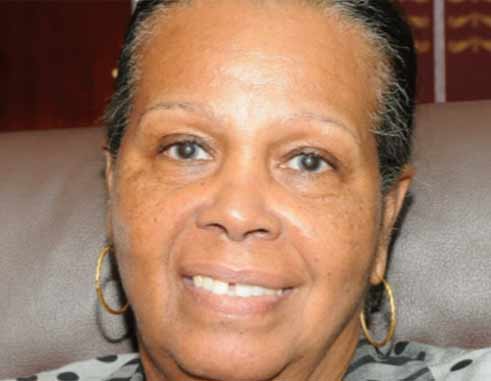By Neville Cenac

I am prepared to argue that it is they. Recommendations of the Suzie d’Auvergne Commission to modify the Constitution, is, therefore, a consequence of a mal-functioning, deliberately brought about by succeeding Prime Ministers to transform them into absolute monarchs. Such transformation is undeniable: for the Westminster model, as given, has been working swimmingly for Britain since the Reform Act of 1832 which extended the franchise, and there is no real distinction between our Constitution, which is written, and theirs, which is not contained in a single document.
It cannot be denied that under British rule, everyone felt safe at home and at work. Sentence me not, gentlemen, too quickly for that sentence, for I’ve never been an advocate of Colonial rule. All generations of men, however, who have been fortunate to have obtained from the British the same rules by which they have been governed, have received a treasure for peace and good government. What better gift could there be! The rules in themselves are perfect. It is the perverseness in their application that induces us to repudiate them. We were shown the way to a possible Eldorado but failed to heed the sign posts.
The seeds of our troubles were shown on the 1st April, 1967 when we became a semi-independent State with full responsibility for our internal affairs. I am speaking from experience. I was then the General-Secretary of the Civil Service Association (Honorary), with eight years of public service. That same year, I received a letter from Premier Compton requiring me to explain to him my participating in politics. All I had done was to have walked across the Soufriere Square, and handed my tape recorder to my friend, Kenneth Foster, as his had failed to deliver the music. I was then holidaying at my aunt’s in Soufriere and the political meeting was a welcome diversion for all.
That letter was a usurpation of the authority of the Public Service Commission. Seeing the spectre of a dictator rising before me, I subsequently resigned in 1968, and vowed in my resignation letter to the Public Service Commission “that as long as I live I shall keep a vigilant watch on the way in which my country is being run”. So I became the first casualty of political victimization. It is those very types of seeds, scattered since 1967, that have developed into that maze where only politicians can find their way, and those hanging onto their coattails like bats in a vaulted ceiling. I have been faithful to that vow since 1968. And this article is another genuine attempt, to keep the wholesome breath of the British Constitution in the nostrils of our fledgling democracy.
Such were the perils that made a re-modelling a compelling necessity. And the attitude of the House to the d’Auvergne report is in itself, a vindication of the Commission’s findings.
At page 24 of the Report, the Commission identified our problems as:
i) “the overwhelming concentration of power in the hands of a small Cabinet…which cried out for change”; and
ii) “a widespread belief that our constitution condemns us to a situation in which our governments, once elected seem beyond our ability to restrain or to influence”.
In words that cannot fail to be understood, a very graphic description of those conclusions were beautifully expressed thus:
“with each new community meeting, each new submission we received, or each new engagement overseas, it became increasingly clear that Saint Lucians regarded our constitution as placing them in the role of window shoppers, passively standing outside the store-front of Government, looking in, hands pressed against the glass, but unable to influence decision-makers once an election was won”.
That description is as sound as a bell. Who then could there be, so unpatriotic, so cowardly, or partisan as to deny a truth so well-founded and honestly expressed. Those findings are not indictments against any Cabinet Minister now in office. They are directed at all who have ever held such office. In fact, the Commission’s reference to “the overwhelming concentration of power in the hands of a small Cabinet” is only a diplomatic way of avoiding confrontation with the current minister in whose two hands all power is now concentrated: for who does not know that the Prime Minister is the Cabinet and every minister his puppet!
For me, the Commission’s mission was fulfilled in that accurate diagnosis rendered, whether or not it recommended amputation, surgery, or treatment as a remedy. I say so because, in essence, the Report happens to be a celebration of views, long held and often repeated since my first political speech on the Market Steps in 1968, forty-seven years ago. On that very day in December, I called for a demonstration to Government House to protest against the dictatorship of that “yoh non qui nee dairnyeermo en toot decisyon payee ah” (one man with the last word in every decision in the country).
I still hear the refrain of my protestations, drawn from the ever so fresh wisdom of the ages, reverberating from the amplifiers on the Market steps, insisting: “There is but one law…the law of justice”, and demanding, “Justice for all, special privileges for none.” And there I pleaded, that those coming into politics “must first have a sympathy for human beings and a passion for justice”. That night, the badge on my jacket read: “The good of the people is the supreme law” (Bonus populi, suprealex).
On the 14th September, 1986, I addressed the Special Conference of the Labour Party on “Parliament and the Cabinet” at the Civil Service Centre (my brain child). Those same objections to the exercise of monarchic powers in a democracy made eighteen years ago,were repeated with equal conviction. I did so in my capacity as Leader of the Opposition as I had passed on the leadership of the party to Julian Hunte in 1984, for the sake of Party unity, and other reasons.
In denouncing the plenitude of powers Prime Minister Compton had arrogated unto himself, ranging from pins to battleships, I called for a shift “from Prime Ministerial Government to Parliamentary Government”. That would have done away with the dictatorship of one man, tribalism in politics, partisan government, wasteful expenditure, corruption in the award of contracts and in all places, or, ameliorated the situation, considerably. There was enthusiastic applause from the 400 delegates. That acclamation was a solid ballot cast in favour of my recommendation. But lo! the refreshing calm that followed was obtruded upon by one dissentient voice. With the haste of lightning, up came Peter Josie to the podium. From there, he thundered: “We want the same power John Compton has!” Sa fan moin eh day (That split me in two). In vain was my 1968 sacrifice of ten (10) years pensionable service. Thereafter, I was never again invited to speak on a Labour platform. Josie’s roar was the voice of political leader, Julian Hunte, who, by then, had kept himself poles apart from me because a senatorial position had not been offered him along with the leadership I had donated to him. Thrown into the cold, I learnt that standing for principles meant being left to shiver. But the inner warmth felt in upholding what is noble mocks the chill, and keeps ague far away. This article is no exception.
General Elections were held on 6th April, 1987, some six months after that Conference. Had the leader and Josie accepted my recommendations and made them part of Labour’s manifesto, a landslide was in the making for Labour. Had they demonstrated an honest desire to transfer the “overwhelming concentration of power” from the hands of the Prime Minister to Parliament, the United Workers Party would have lost its voice in seeking to justify any contrary position, I am certain.
When I crossed the floor in 1986, I repeated the experience I had had at the Special Conference as one of the many reasons for my disenchantment with the Labour Party hierarchy since my call of a new leader from the bowels of the UWP, and refashioned him in the image of Labour. The speech is recorded in Hansard, and was transmitted, live. The point to all this is, that in the main, the Commission’s 2011 Report, highlighting “the overwhelming concentration of power in the hands of a small Cabinet”, tallies with my own views expressed since 1968, forty-three years ago. The loss to Saint Lucia cannot be easily totted up, and would boggle the mind
I apologize profusely for appearing as a trumpeter of my own recommendations. But if all the 400 delegates at the 1986 Special Conference, (including members of the press then present), and if all the citizens who heard my address in the House in 1987, and if my star witnesses Peter and Julian remain silent, what else can I do when so much contempt was thrown on the Report by the Government, during its consideration by the House?
Our Suzie has since passed and cannot speak from the grave. But there are enough experienced and brilliant tongues in the Report to speak for her. The 20 other members who participated fully, should, in conscience, help her rest in peace. They cannot, in such circumstances, abdicate their responsibility to defend their own property. They cannot, for their own sakes, allow her dust to be dug up and scattered about like dross, for in this matter, her dust is theirs, as is her honour.
A judge so fair, hearty and friendly, who called a spade a spade, reporting so plainly on the root problem in the management of our country’s affairs, ought not to be derided, but epitomized in an epitaph to her. I shall stand by the daughter of Sullivan d’Auvergne, (a household name), who was able to call every plant by its name, trace the ancestry of every Saint Lucian to the remotest galaxy, and do so gladly.
While waiting, I want to congratulate Peter Josie for his article in THE VOICE of the 10th instant, entitled, “Compton was right”. Not only is it an endorsement of our Suzie’s report, but it has lifted all the weight placed on my shoulders so very long ago. There he flogs the Government for “undermining the very institutions upon which a free, fair and function democracy is built”. Peter, I thank you. “It is never too late to mend”, we have been assured: I’m not being funny, for I am truly impressed with your articles. Press on.
In another article, I will endeavour to prove that what is required to divest Prime Ministers of such absolute power, is A NO PARTY PRIME MINISTER IN A MULTI-PARTY STATE, a concept deducible from the Report itself.













